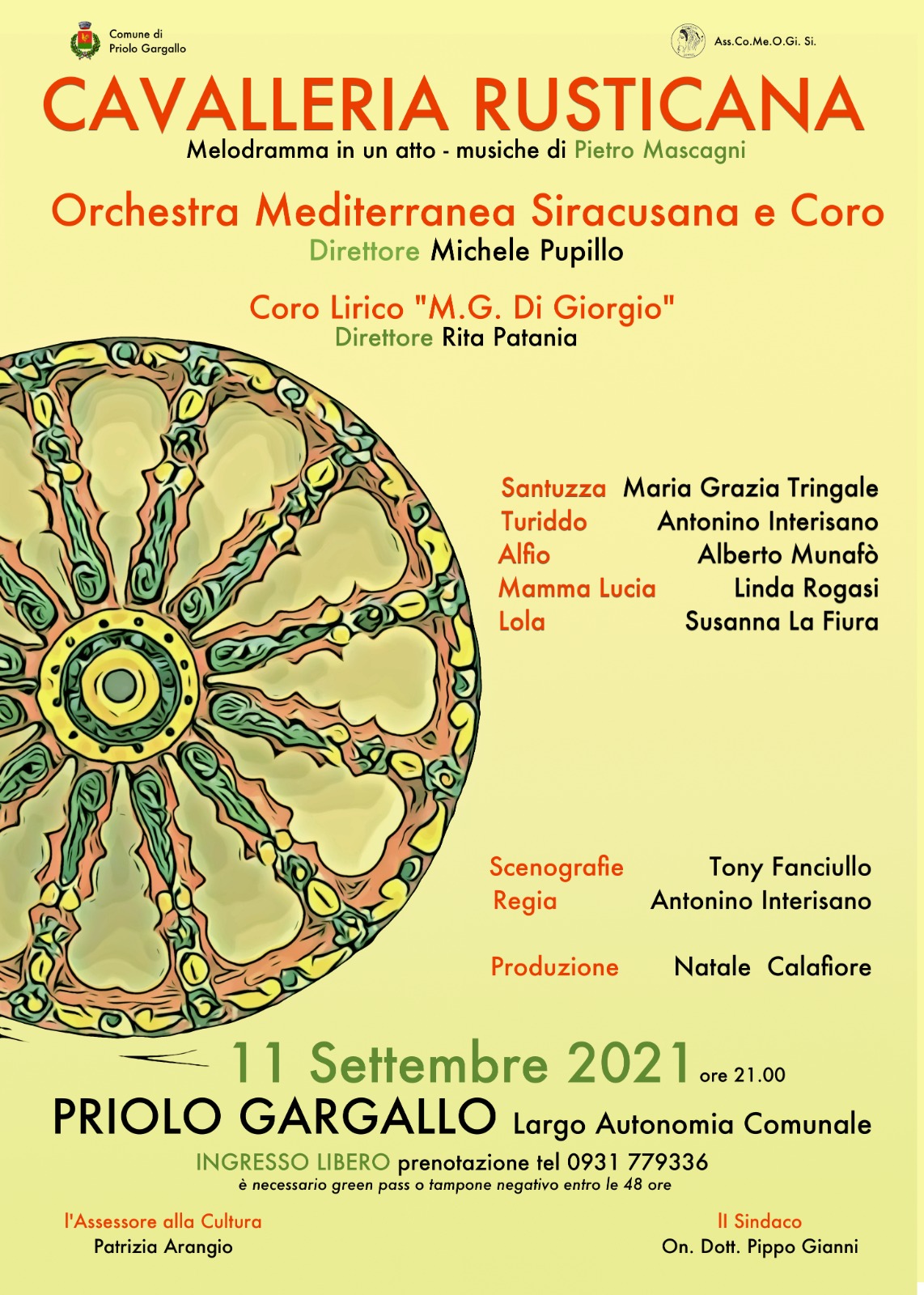Land in sight.
To get at your helm, or not.

A recent performance of ‘Cavalleria rusticana’ of P. Mascagni, directed by Antonino Interisano and scenes design by Tony Fanciullo.
“Even obsessive neurosis, as we know, spontaneously recovers without difficulties, especially after a favourable feminine influence, leaving only a few inhibited, eccentric appearances…[1]”
Maybe a few of us can wonder that confidence by which Freud judges a real work from patients : and mainly in these written lines where he doesn’t explicit about an analytical work done by the woman, able to be finally a real partner after dropping that neurotic ‘excess’ which is the thought of a ‘feminine look-alike’, as alternative to masculine.
We can ask then why Freud says ‘castration’ also about a woman able to drop that exceeding thought which makes you sick too… Freud however honestly follows his own masculine experience, which he knows, opening the door and any further word to whom would like conveniently speak or write about.
There is something else in those rapid words by Freud : first of all he introduces the feminine as ‘one’ of two sexes, without any other link than offering – still in the care of one’s own thinking – something the partner is neglecting, even due to a strictest education, and so starting a narcissistic solitude.
In addition Freud is telling about a proposal by the woman which only a partner still working on his own inhibitions and symptoms can collect, and surely not someone already gone into narcissism and to whom this appeal could bring all the snares and dangers of changing, even if favourably.
Finally Freud is telling about a quiet woman, neither claiming nor urging, even to share a benefit she already enjoys : and more than in other paragraphs, by me, is evident a distance from that ‘jouissance’ – melancholy or euphoric – from which Lacan alerted but also, resigned in his own removal, did inform about its ineluctability, even if as his own personal and not proved judgement.
Neverthless is nowadays still the bloody passion – well performed by the characters of ‘Cavalleria rusticana’ which remain unbeatably bewitched in the helm wheel of his, or her, obsessive neurotic symptomatology – which keeps on flaming whom comfort, reassure themselves and endlessly delegate.
Marina Bilotta Membretti, Cernusco sul Naviglio November 22, 2021
[1] “Eros e conoscenza. Sigmund Freud – Lou Andreas Salomè, Lettere 1912 – 1936”, ‘Universale’ Bollati Boringhieri (2010) p.96 (Bad Gastein, 1 agosto 1919).